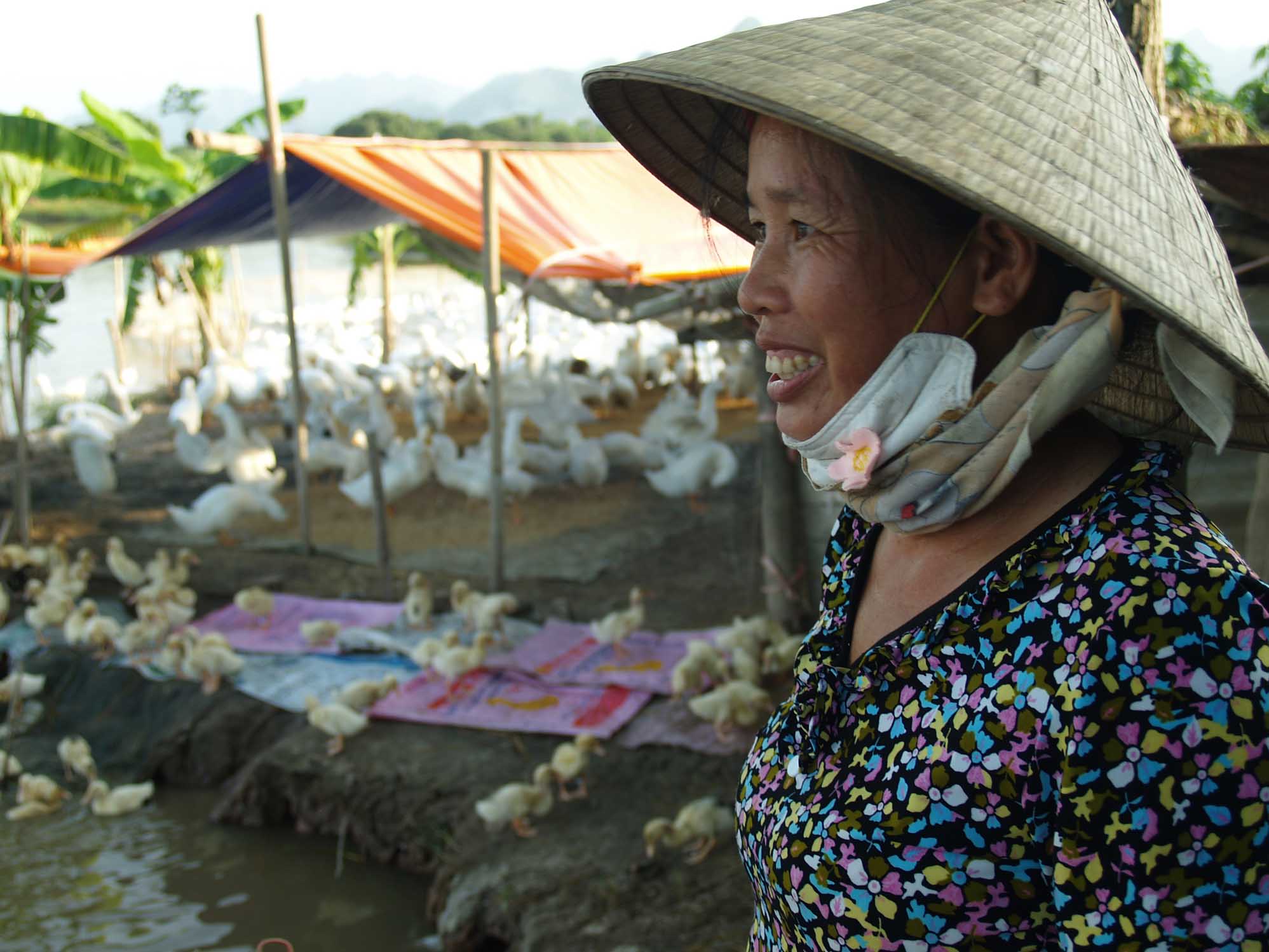The key message that needs to be heard is that Avian Influenza (AI) is endemic in Vietnam and needs to be controlled, say UN officials involved in the battle to identify and contain avian influenza outbreaks.
According to the Vietnam Partnership for Avian and Human Influenza (PAHI), three provinces have reported new outbreaks in recent weeks. Since the start of 2008, 44 districts in 26 of Vietnam's 64 provinces have reported outbreaks, highlighting the challenge the country faces in controlling the disease.
Overall since 2003, Vietnam has had 106 cases of human avian flu and 52 deaths.
Yet compared to 2004 and 2005, when 90 cases of human infection occurred with 39 deaths, [] Vietnam has made huge strides, according to David Payne, the UN Development Programme avian influenza specialist in Hanoi, "with only five infections since March 2008, all of whom died".
Payne gives the Vietnamese government high marks for recognising early on the severity of the AI problem and turning to the UN and the humanitarian community for advice and support.
"The office of the UN resident representative for Vietnam - with the World Health Organization (WHO), the Food and Agriculture Organization (FAO) and the UN Children’s Fund (UNICEF) taking the lead - has worked closely with the Ministry of Agriculture and Rural Development and other relevant ministries," said Payne, adding that UN agencies have taken a united approach to assisting the government.
The key strategy of the government and UN agencies in confronting avian influenza is the Viet Nam Integrated National Operational Programme for Avian and Human Influenza 2006-2010, known as the "Greenbook".
It is a US$250 million five-year programme with more than US$160 million committed to date from the Government of Vietnam and 16 international donors. It includes improving surveillance abilities, culling and market controls and the goal of vaccinating 130 million poultry twice a year. It is also designed to strengthen overall health capacity, train epidemiologists and establish laboratories.
Awareness raising efforts
 Photo: Brennon Jones/IRIN  |
| Tran Minh Thu, UNICEF’s Avian Influenza Communications Officer in Hanoi, shows members of the Women’s Union of Ha Nam Province some of the brochures and posters it has helped produce to raise awareness about avian influenza |
An aggressive public awareness programme overseen by the UN Children's Fund (UNICEF) is integral to the strategy.
UNICEF has supported the rental of mobile vans equipped with loudspeakers that travelled around key districts in eight high-risk provinces in the north in March/April 2008, informing residents of ways to safeguard against avian influenza transmission. They have also distributed posters and brochures.
According to Tran Minh Thu, UNICEF's avian influenza communications officer in Hanoi, UNICEF is working with the National Centre of Heath and Education on a variety of awareness raising efforts.
"In May 2007, we provided support for a mass radio and TV awareness campaign and also helped to train provincial and district level health staff on safeguards against AI and human avian influenza and in honing their communication skills," said Thu.
The key messages include hand washing, safe and sanitary slaughter of poultry, thorough cooking of meat, and keeping children away from contact with poultry and their faeces.
Ha Nam Province
In Ha Nam Province, just south of Hanoi, the director of its Centre of Health Education, Pham Quang Mai, told IRIN that since 2003 the province had had five outbreaks of avian influenza with mass culling, and five human deaths.
Mai praised UNICEF's efforts but told IRIN: "We think people have become complacent. They still throw dead chickens into the rivers and the canals… "People are aware of the need to wash their hands but many don't… I believe that things will change, but it will take time."
UNICEF is currently evaluating with the government the next steps in raising community awareness, but Do Thi Dung, vice-director for communications for Ha Nam Province's Centre of Health Education said: "I think the campaign should now involve community health workers at the commune level, not just the provincial and district levels."
In one project, UNICEF is helping to do just that.
 Photo: Brennon Jones/IRIN  |
| Bucolic but potentially deadly: ducks are the principal carrier of avian influenza in Vietnam today. Some of Hoang Thi Tien’s flock in Que Commune, Kim Bang District, Ha Nam Province |
The Women's Union in Ha Nam Province has 24 "clubs" - groupings of 60 women - and hopes to expand the number to address the avian influenza problem.
Bui Thi Hang, Women's Union Communications Officer for Ha Nam Province, said: "Women are the ones who are directly involved in raising poultry so the Women's Union is the most effective means in reaching women with the key messages."
UNICEF acknowledges behaviour change is a long-term challenge. This was demonstrated on a visit to Hoang Thi Tien's duck farm in Que Commune, Kim Bang District.
"I sell the birds and slaughter them at home." Tien told IRIN. She says she vaccinates her chicks, which she buys from a safe hatchery, and even cleanses her motorbike after transporting the chickens and washes her boots with detergent. Nonetheless, her protective gloves are well-worn with tears all over. Worst of all, she lives no more than 100 metres from Le Thi Oanh's farm, and their ducks share a common waterway. Only recently Oanh's flock of 130 ducks were culled because of an AI outbreak.
"I just don't think I will have an avian flu outbreak here, Tien told IRIN. "It happens to others."
bj/cb
This article was produced by IRIN News while it was part of the United Nations Office for the Coordination of Humanitarian Affairs. Please send queries on copyright or liability to the UN. For more information: https://shop.un.org/rights-permissions





